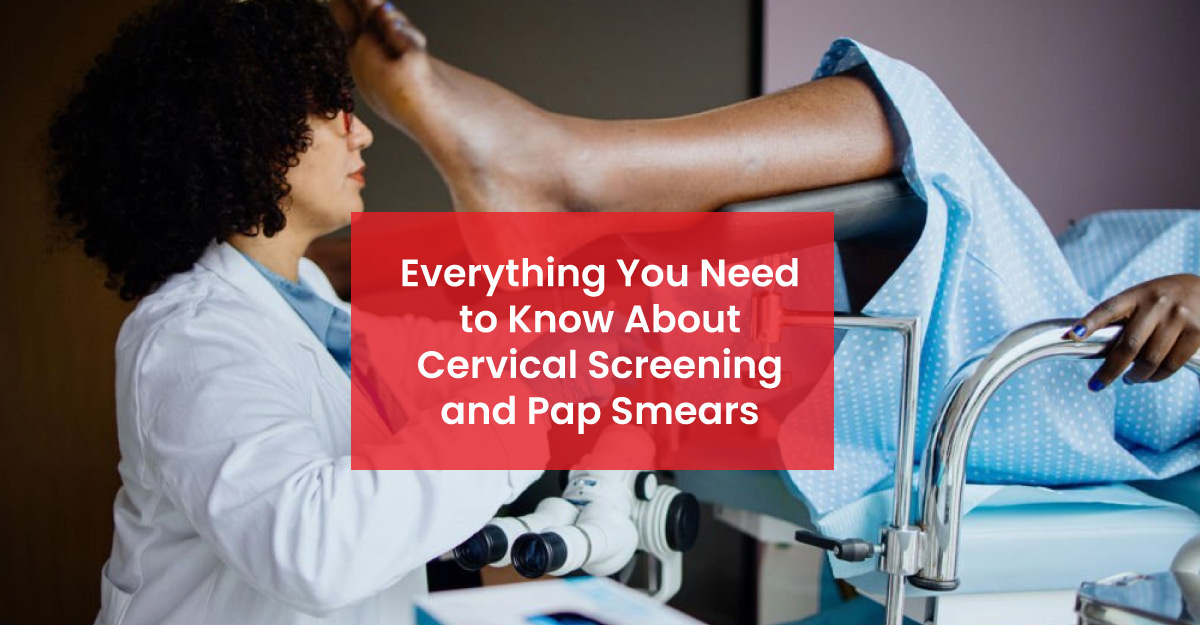56.2 million Nigerian women aged 15 and older are at risk of cervical cancer. Approximately 12,075 women develop cervical cancer every year. The disease has claimed the lives of 7968 people who have suffered from it. Cervical cancer is the 2nd most frequent cancer among women in Nigeria and the 2nd most frequent cancer among women between 15 and 44 years of age.
Cervical Screening and Pap Smear test is a crucial tests in the prevention of cervical cancer. Over the years, it has helped women identify any abnormalities in their cervix so that they can take action and prevent the development of cervical cancer in their bodies before it is too late. Although many people dread this test because of its invasiveness, the examination only takes a few minutes and should not be uncomfortable if you do it correctly. Learn how to prepare for your test, what to expect during the test, and the steps to take afterward.
What is Cervical Screening?
It is an effective method of detecting changes in the cells in your cervix. Your doctor will use a small swab to take a sample of cells from your cervix, which will then go to a lab for analysis. The doctor will refer you for further testing if there are abnormalities detected.
6 reasons women need a high vaginal swab test
Related: How to Prevent Cancer in Your 40s: The 11 Best Ways
What is a Pap smear?
A Pap smear is a simple, painless procedure. During a Pap smear, your doctor collects cells from your cervix using a small brush or spatula. Doctors send these cells to a lab for analysis. The Pap smear can detect cervical cancer and precancerous changes before they become cancerous. It also helps identify sexually transmitted infections (STIs) such as gonorrhea, chlamydia, herpes, human papillomavirus (HPV), syphilis, HIV/AIDS, and trichomoniasis.
The difference between pap smear and cervical screening
Cervical Screening and Pap Smear are tests to detect abnormal cells in the cervix. The difference is that pap smears detect precancerous cells that could turn into cervical cancer, and cervical screening detects any changes in a woman’s cervix, not just those linked to cancer.
Related: Marburg Virus: The Complete Guide To Symptoms, Treatment, And Prevention
Who should get tested?
If you are a sexually active woman, then you should get tested. If you have ever had a pap test in the past, it’s vital to get checked regularly.
Women aged 25-65 should have a Pap test every two years.
Further, if there is a family history of cervical cancer, or if the previous testing showed an abnormal result (even though it was several years ago), it would be best to consult your doctor about whether additional testing is necessary.
Related: Cancer Remission Through Immunotherapy: Promising New Clinical Trial
Who shouldn’t get tested?
There are certain circumstances when you should not undergo testing. These include:
- Women over the age of 70
- Women who have had a hysterectomy
- Women who have had previous cervical cancer (or associated treatment)
- Women who have had previous abnormal pap smears, including those with untreated human papillomavirus infection
When should I have my first pap smear?
The John Hopkins School of Medicine recommends you have your first pap test when you turn 21 or become sexually active. If you started having sex, it’s best to go for cervical screening as soon as possible.
Because of this, the risk of developing abnormal cells in the cervix increases with age and frequency of sexual activity. The earlier you have screenings, the more likely it is that any abnormalities will be detected early and get treatment.
How often should I have a pap smear?
- Three-year interval. If you’re between 20 and 29 years, you should have a Pap test every three years.
- Two-year interval. If you fall between 30 and 69 years and have had three regular Pap tests, you can have your next one at two-year intervals instead of three years.
- One-year interval. After three consecutive abnormal Pap tests in a row, women aged 30–69 can undergo annual screenings instead of at 3 or 2 yearly intervals until they reach age 70.
Related: 9 High Blood Pressure Symptoms You Should Know
How does the test work?
You will pull your clothes from the waist and put on a gown (or paper robe). Lay on your back with both feet in stirrups, as if having a pelvic exam or vaginal ultrasound done. The doctor or nurse will then take samples of cells from inside the vagina with a spatula called a speculum (which looks half an hourglass shape).
Related: 7 Health Screening Tests People In Their 30s Should Take To Stay Healthy
How do I prepare for my test?
While we suggest you keep your abdominal muscles relaxed during a pelvic exam, some steps might help prepare yourself mentally and physically:
- Practice deep breathing exercises. Deep breathing exercises can help you relax before the test begins.
- Don’t drink lots of water for your appointment; otherwise, it could make things uncomfortable.
- If possible, try not to eat or drink anything after midnight.
What does it mean if my doctor tells me I have abnormal cells?
Doctors can follow an abnormal Pap smear test result with a procedure known as a colposcopy and biopsy, which is then sent for microscopic evaluation by a pathologist who decides whether cancerous cells are present in them and grades their severity.).
In conclusion, if you don’t have a regular pap test, now is the time to get one by booking a cervical screening appointment with Medbury Medicals and ensuring that you don’t miss out on any opportunities for early detection.
See also: How To Secure The Baby’s Health During Pregnancy: 6 Quick Tests







Comments:
Pingback: High Vaginal Swab Test: 6 Reasons Women need it